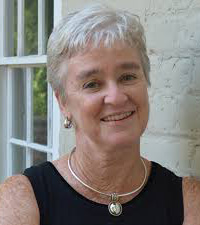
In re-establishing an Archdiocesan Pastoral Council, Archbishop William E. Lori hopes the new group of lay advisers will be guided by the Holy Spirit and will help the Archdiocese of Baltimore evaluate “what are we doing right, what are we doing wrong, what have we not thought about,” according to Mary Ellen Russell, archdiocesan director of community relations.
Russell, who is helping get the council up and running and who will provide staff assistance, along with other archdiocesan personnel as needed, said the best analogy for the group is the reading from Paul’s first letter to the Corinthians in which he talks about the many parts of the body making up the Body of Christ (1 Cor 12:12-26).
It is important that the council reflect the diversity of the archdiocese – geographically, culturally and a balance of men and women.
The council will consist of 13 lay people, with 10 regional representatives and spots reserved for representatives of the African-American, Latino and youth/young adult communities. Russell said the hope is that other cultural communities will be reflected in the regional representatives.
Parishioners can nominate themselves via an online application process. Regional representative applications will be reviewed by the vicar forane (a priest who is a local representative for the archbishop and coordinates common activity in a region) and two lay people from other parishes in his region, so that at least three parishes are represented in the selection process. Pastors in the region can encourage qualified members of their parishes to apply.
The regional priest representative and two lay people screening applicants will suggest two names to the archbishop’s regional vicar, for one to be selected. Deadline for applications is April 1.
Members of the council will serve a non-renewable three-year term, although some in the initial batch of members will be given one- or two-year terms, so that the council will always have a portion of new members each year in the future.
Part of the reason for the regions to submit two names is to start creating a “bench” for future appointments and rotation of members. “We have deliberately built into the process a very regular renewal, so that we are constantly renewing the vigor and vision of the council,” Russell said.
The council itself may change the process once it is in place, she said, adjusting as needed.
Members of the council must:
- Be a practicing Catholic in good standing with the church who is actively involved in his or her parish community;
- Accept church teaching and be experienced in prayerful discernment;
- Be able to communicate collaboratively in a large group setting;
- And, be familiar with the interests and concerns of the local, archdiocesan and global church.
The primary mission for the council is to facilitate dialogue between Archbishop Lori and the faithful of the archdiocese. In consultation with the archbishop and diocesan leaders as appropriate, the group will gather information, ponder and propose practical conclusions regarding major pastoral initiatives.
The board will meet quarterly on weeknights or Saturday mornings, rotating its meetings among the three vicariates. One meeting a year could be a retreat or formation opportunity.
Though not required by canon law, a pastoral council should be established “in each diocese, to the extent that pastoral circumstances recommend it” (Code of Canon Law 511).
Russell said it is important that the council focus on pastoral topics not temporal ones, and should not duplicate the work of other consultative bodies in the archdiocese, including the Presbyteral Council (priests who advise the archbishop) and a finance council (the Board of Financial Administration), both of which are required by canon law. The archdiocese also has advisory groups for topics such as facilities planning.
And while the Pastoral Council will focus on pastoral questions, it won’t tackle things outside the competence of the local church. For example, Russell said, while the council cannot address women’s ordination, which is a topic for the global church, it can look at ways to ensure that more women are represented in leadership positions in the archdiocese.
In addition to the 13 lay members, Archbishop Lori and his auxiliary bishops and regional vicars will be ex officio members of the council – currently Bishop Adam J. Parker, vicar general and moderator of the curia; Bishop Denis J. Madden, urban vicar; Bishop Mark E. Brennan, eastern vicar; and Monsignor James W. Hannon, western vicar.
An Archdiocesan Pastoral Council was established by Cardinal Lawrence Shehan and continued by Archbishop William D. Borders and Cardinal William H. Keeler during their tenures in Baltimore.
For more information or to apply, visit http://bit.ly/aob-apc.
This story was updated 3/6/19, 9:30 a.m., to better reflect the history of the councils in the past.



